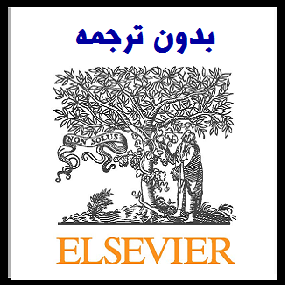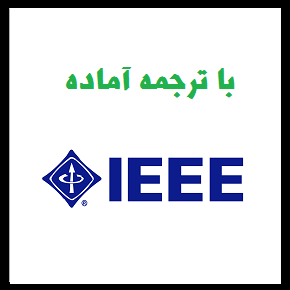دانلود رایگان مقاله یک چارچوب مبتنی بر بلاکچین برای حفظ حریم خصوصی و به اشتراک گذاری امن داده ها در شهرهای هوشمند – سال 2020


مشخصات مقاله:
عنوان فارسی مقاله:
اشتراک گذاری : یک چارچوب مبتنی بر بلاکچین برای حفظ حریم خصوصی و به اشتراک گذاری امن داده ها در شهرهای هوشمند
عنوان انگلیسی مقاله:
PrivySharing: A blockchain-based framework for privacy-preserving and secure data sharing in smart cities
کلمات کلیدی مقاله:
اینترنت اشیا، شهر هوشمند، امنیت و حریم خصوصی، بلاکچین، انطباق با GDPR اتحادیه اروپا
مناسب برای رشته های دانشگاهی زیر:
معماری، فناوری اطلاعات، شهرسازی
مناسب برای گرایش های دانشگاهی زیر:
تکنولوژی معماری، اینترنت و شبکه های گسترده، طراحی شهری
وضعیت مقاله انگلیسی و ترجمه:
مقاله انگلیسی را میتوانید به صورت رایگان با فرمت PDF با کلیک بر روی دکمه آبی، دانلود نمایید. برای ثبت سفارش ترجمه نیز روی دکلمه قرمز رنگ کلیک نمایید. سفارش ترجمه نیازمند زمان بوده و ترجمه این مقاله آماده نمیباشد و پس از اتمام ترجمه، فایل ورد تایپ شده قابل دانلود خواهد بود.
فهرست مطالب:
Abstract
Keywords
1. Introduction
1.1. Related work
1.2. Basic terminologies
1.3. Organization of the paper
2. Privysharing: Blockchain-based secure data sharing
2.1. Smart city scenario
2.2. Network architecture
2.3. Smart city blockchain – Plain TX flow
2.4. Smart city blockchain – Private data TX flow
2.5. Reward mechanism
3. Security analysis
3.1. ACL rules
3.2. Security of REST API and Dapp
3.3. Restricted access to user data assets via multiple Chs
4. Experimental results
4.1. Validation of ACL rules
4.2. Performance efficiency
4.3. Limitations and open challenges
4.3.1. Multiple ledger storage by the peers
4.3.2. IoT device integrity
4.4. A way forward to address the limitations
4.4.1. Alternative to ledger storage by the peers
4.4.2. Secure IoT device integration
5. Conclusions and future work
Declaration of Competing Interest
Acknowledgements
References
قسمتی از مقاله انگلیسی:
1. Introduction
There has been an exponential growth in the IoT-based services in the world, especially in telehealth, manufacturing and in urban areas to form smart cities. IoT is expected to connect 30 billion devices by 2020 (Lund et al., 2014). Use of IoT technologies will not only improve the quality of life of people but also contribute to the world economy. IoT is predicted to create about USD 7.1 trillion contributions to the global economy by 2020 (Lund et al., 2014). Concurrently, it is also estimated that by 2030 the global urban population will reach 5 billion. This rapid urbanization demands effective, and optimum use of city resources as well as smart governance and efficient service delivery (Moustaka et al., 2018; Zhang et al., 2017). It is believed that the solution to the rapid urbanization problems lies in creating a smart city that utilizes IoT technologies to monitor the physical world in real-time and provide intelligent services. These services may include eToll, smart parking (Zhang et al., 2017), smart health (remote patient monitoring, health emergency response), and police assistance (for law and order situations, e.g., riots, crime, or security breaches) (Moustaka et al., 2018). However, at the same time, IoT devices are vulnerable to a vast number of security and privacy attacks (Makhdoom et al., 2019). Although, these threats are known to the manufacturers, unfortunately security in IoT devices is either neglected (due to cost or lack of expertise) or treated as an afterthought (Wurm et al., 2016). Similarly, a smart city network also suffers from numerous security and privacy issues (Bartoli et al., 2011; Moustaka et al., 2018), such as threats to privacy, integrity, and availability of user data, false data injection (Zhang et al., 2017), vulnerability to Sybil Attack (Cui et al., 2018), and single point of failure due to centralized control.





